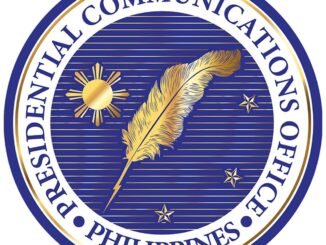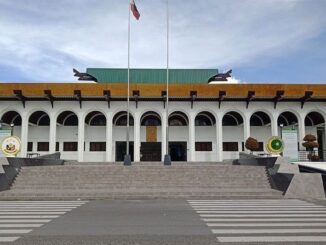
A clear mechanism should be crafted to make Facebook Meta compliant with Philippine laws, especially with the upcoming 2025 Midterm Elections, according to an expert.
“There should be a clear mechanism for how Facebook can be accountable to our laws,” political science professor Cleve Arguelles told GMA News Online.
“Of course, our aim here is not to invite the strong hands of the government to overrule Facebook but rather that they be responsive to (Philippine) laws and lawful conduct,” he added.
Arguelles noted that holding Facebook Meta accountable is included in the principle of “artificial intelligence (AI) sovereignty,” which is the “ability of nations and organizations to govern AI systems independently.”
AI sovereignty is among the principles for ethical and effective AI use in elections and politics, which was presented in the Council of Asian Liberals and Democrats’ (CALD) latest policy paper.
In a Viber message, Commission on Elections (Comelec) chairperson George Erwin Garcia said the poll body has entered a memorandum agreement with Facebook Meta to curb election-related disinformation.
GMA News Online has reached out to Facebook Meta for comments but it has yet to reply.
CALDs’s policy paper stated that integration of AI into elections and politics can serve as an opportunity and a challenge, so political parties must “prioritize tools and practices that ensure voters understand how AI technologies influence campaign strategies and messaging.”
GMA News Online has also reached out to the Department of Information and Communications Technology (DICT) for it’s take on the issue.
The DICT earlier said it is working with social media sites to address false content made with AI, especially ahead of the 2025 polls, by implementing a watermarking and categorization system.
Interest media
Citing American businessman and author Gary Vaynerchuk, Alvin Carpio, founding director of the School of Social Justice, said the people are in the age of “interest media,” rather than social media, where they are more interested in being entertained.
He observed that the entertainment industry has a greater influence in Philippine politics as compared to the United States and United Kingdom.
“They (politicians) are characters; they catch your attention. It’s not boring, geek speak or policy speak. It’s something that your uncle will say or auntie will say around the dinner table,” Carpio said during the panel discussion of CALD’s policy paper.
He added that politicians now have a character they portray like action heroes to garner the people’s votes.
“I don’t think it’s necessarily about speaking like other people or being on the ground knocking on doors. I think it’s having a character that people look to as real,” Carpio said.
Meanwhile, political analyst Julio Teehankee said the shift from traditional to multi-platform media in the political landscape is inevitable, as he pointed out that even newscasters, entertainers, actors, and actresses now have their own YouTube channels.
“The action is there. The money is there, right? So definitely, politics will follow, and politics will be playing in that area,” Teehankee added.
In an interview with GMA News Online, Teehankee noted that there is a bigger chance politicians will win in the election if they use social media during their campaigns.
However, he warned that politicians may exploit social media by spreading disinformation to get the attention of the public, so social media companies should do self-regulation.
In a resolution, Comelec has mandated all candidates, parties, and their campaign teams to register all of their official social media accounts and pages, websites, podcasts, blogs, vlogs, and other online and internet-based campaign platform to the Comelec Education and Information Department within 30 calendar days after the filing of certificates of candidacy or until Dec. 13.
Garcia said those who fail to comply may face disqualification.
The resolution also stated that a motu proprio election offense complaint would be filed against the respondent before the law department.
As of Dec. 4, the poll body said it has received 3,904 registration forms online. Of the total number, 24 are senatorial aspirants, 3,775 are local aspirants, and 105 are party-list groups, organizations, and coalitions.
Comelec also said it received hard copy documents from 2,096 political aspirants.—RF, GMA Integrated News





Be the first to comment